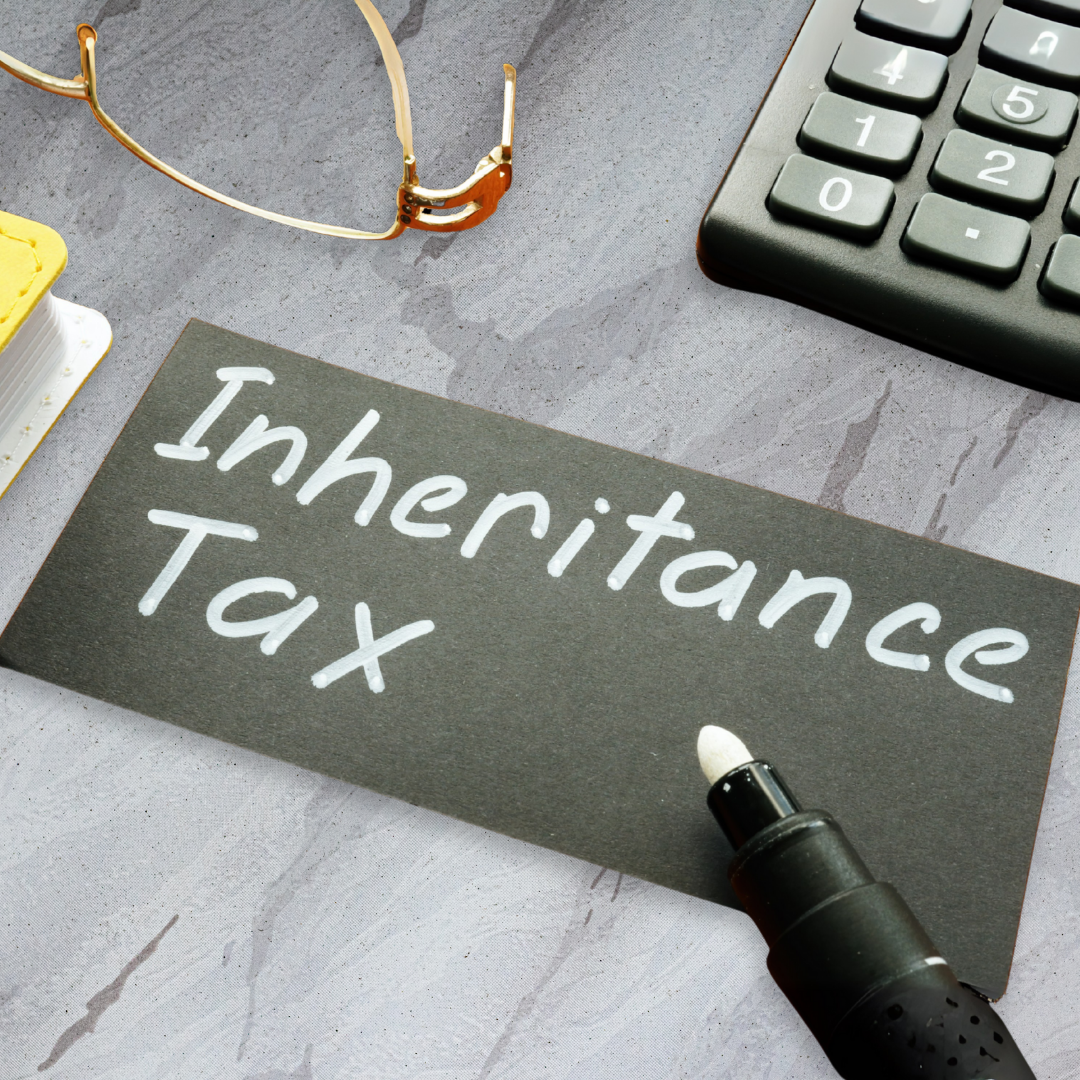Safeguard your assets, employees, and reputation with comprehensive business insurance coverage.
Real cash. Ready fund. Right on time.
Life Insurance
Ensures your loved ones receive a lump-sum when you’re gone
Savings and Investment
Secure your future with guaranteed savings and growth
Health Fund
Funds ready for life’s medical challenges
General Insurance
Protecting you on the road, at home, and beyond
Hello! I'm Melissa
I’m a Licensed Financial Advisor with AXA, one of the world’s leading insurance and asset management companies.
I work with individuals, families, and businesses to help secure their future through personalized insurance and investment solutions, including life and health protection as well as strategic wealth-building plans.
Let’s build a safer, more confident future together. With AXA, your fund is ready when you need it most.
CONTACT ME
Real cash. Ready fund. Right on time.
Life Insurance
Ensures your loved ones receive a lump-sum when you’re gone
Savings and Investment
Secure your future with guaranteed savings and growth
Health Fund
Funds ready for life’s medical challenges
General Insurance
Protecting you on the road, at home, and beyond
Hello! I'm Melissa
I’m a Licensed Financial Advisor with AXA, one of the world’s leading insurance and asset management companies.
I work with individuals, families, and businesses to help secure their future through personalized insurance and investment solutions, including life and health protection as well as strategic wealth-building plans.
Let’s build a safer, more confident future together. With AXA, your fund is ready when you need it most.
CONTACT ME
Real Cash
Ready Fund
Right on time
Life Insurance
Ensures your loved ones receive a lump-sum when you’re gone
Savings and Investment
Secure your future with guaranteed savings and growth
Health Fund
Funds ready for life’s medical challenges
General Insurance
Protecting you on the road, at home, and beyond
Hello! I'm Melissa
I’m a Licensed Financial Advisor with AXA, one of the world’s leading insurance and asset management companies.
I work with individuals, families, and businesses to help secure their future through personalized insurance and investment solutions, including life and health protection as well as strategic wealth-building plans.
Let’s build a safer, more confident future together. With AXA, your fund is ready when you need it most.
CONTACT ME
Secure life and business risks with AXA solutions
- All
- Life insurance
- general insurance

Hospital confinement
Comprehensive care from surgery and transplant to inpatient and outpatient services. We’ve got your hospital bills covered.

Critical illness insurance
When illness strikes, we’re your safety net with a ready fund.

VUL life insurance
Protection today, investment for tomorrow.

Whole life insurance
Protecting their future, even when you’re gone.

Term life insurance
Protect more, pay less, live worry-free.

Education fund
Education funded with 8% yearly payouts, plus dividends and a guaranteed maturity amount

Retirement fund
Retire with confidence, with 8% annual payouts, growing dividends, and a lump sum at maturity.

Investment with dividends
Earn 5% yearly dividends, plus growth from your unit values.

Estate tax fund
Ensured that a sufficient estate tax fund was in place before distributing the assets.

Car insurance
Protects you from unexpected repair and liability costs.

Fire insurance
In the event of a fire, you’ll have the support you need to recover and rebuild.

Business insurance

Construction insurance
Protects your project from start to finish by covering materials, equipment, liability, and unforeseen delays.

Floater insurance
Covers mobile business assets like laptops, tools, and equipment, keeping them protected on-site and in transit.

Event insurance
Protects against unexpected cancellations, weather disruptions, property damage, or liability claims.

Travel insurance
Covers unexpected expenses like trip cancellations, medical emergencies, lost luggage, and more.

Student/Campus insurance
Provides essential coverage for accidents, injuries, and medical emergencies on or off campus

Judicial bonds
These bonds ensure that legal obligations are met, from appeals to injunctions and beyond.
FAQs
LIFE INSURANCE
What is life insurance?
Life insurance is a contract that pays a lump sum to beneficiaries upon the insured’s death.
What’s the difference between term and whole life insurance?
Term Life: Covers a set number of years; no cash value.
Whole Life: Lifetime coverage with a savings component (cash value).
Who should get life insurance?
Everyone who needs future financial protection, especially breadwinners or those with dependents, should consider life insurance. It is particularly important for individuals responsible for covering education, healthcare, retirement, and daily living expenses. Life insurance helps ensure your loved ones are financially supported in case of unexpected loss.
How much life insurance do I need?
A good rule of thumb is to have coverage equal to at least 5 times your current annual income to help your family financially recover. The exact amount depends on your income replacement needs, outstanding debts, and future expenses, such as children’s education, daily living costs, or mortgage payments.
Can I change my beneficiaries later?
Yes, most policies allow beneficiary updates anytime.
HEALTH INSURANCE
What does health insurance cover?
It typically covers hospitalization, doctor visits, lab tests, medications, and surgeries. Some plans also include dental and vision benefits.
What is the difference between HMO and PPO?
HMO: Requires referrals and uses in-network providers.
PPO: Offers more flexibility with doctor choices and doesn’t require referrals.
What is critical illness insurance?
Critical illness insurance provides a lump-sum cash benefit if you are diagnosed with a serious illness such as cancer, heart attack, or stroke. This benefit can be used for medical treatments, recovery, or non-medical expenses like income replacement or household bills.
What is a pre-existing condition?
A pre-existing condition is a health issue you had before obtaining insurance coverage. Some policies may limit coverage or apply waiting periods for such conditions.
Can I add dependents to my health insurance?
Yes, most policies allow you to add eligible dependents such as a spouse and children.
What is a waiting period?
A waiting period is a set amount of time after your policy starts during which coverage is limited or not yet available for certain conditions or services.
VARIABLE UNIVERSAL LIFE (VUL) INSURANCE
What is a VUL policy?
VUL is a type of life insurance that combines death benefits with investment.
How is VUL different from regular life insurance?
Unlike term or whole life, VUL lets you invest part of your premiums, potentially growing the policy’s cash value over time.
What are the risks of VUL insurance?
Investment returns are not guaranteed. Market downturns can reduce your policy’s cash value and overall benefit.
Can I withdraw or borrow from my VUL policy?
Yes, you can access the cash value through loans or withdrawals, but doing so may reduce the policy’s death benefit and long-term value.
Is VUL suitable for everyone?
No. VUL is more suitable for financially savvy individuals who want flexible life coverage along with investment growth potential.
MOTOR INSURANCE
Is car insurance required?
Yes, the Land Transportation Office (LTO) in the Philippines requires all registered vehicles to have Compulsory Third Party Liability (CTPL) insurance.
What types of motor insurance are available?
Third-party only: Covers damage or injury caused to other people or property.
Comprehensive: Covers your own vehicle, third-party liability, theft, fire, and damage from accidents or natural disasters.
What factors affect my premium?
Premiums are influenced by factors such as the vehicle’s age, make and model, usage, your location, and your claims history.
Does motor insurance cover damage from natural disasters?
Only if you have comprehensive coverage, which includes protection against acts of nature like floods, typhoons, or earthquakes.
What should I do after a car accident?
Call emergency services if needed, ensure everyone’s safety, document the incident with photos, and report it to your insurer promptly to file a claim.
FIRE INSURANCE
What is fire insurance?
Fire insurance is a type of property insurance that covers loss or damage caused by fire.
What does fire insurance typically cover?
It typically covers the structure, contents, and loss of income due to fire damage. Some policies may include related perils like lightning, explosions, and more.
Does it cover electrical fires or arson?
Most policies cover accidental electrical fires. However, intentional acts like arson committed by the property owner are not covered.
Do I need fire insurance?
Yes, fire insurance is important for full protection of your property. A comprehensive fire insurance policy may also cover related events such as lightning, explosions, earthquakes, typhoons, and floods, depending on your policy terms.
How much coverage do I need?
Coverage should reflect the cost to rebuild your property and replace valuable contents in the event of a total loss.
BUSINESS INSURANCE
What is business insurance?
Business Insurance is a comprehensive solution designed to protect micro, small, and medium enterprises (MSMEs) from various risks, including property damage, liability claims, employee-related risks, and business interruption.
Who is eligible for this insurance?
Businesses in industries such as retail, manufacturing, services, logistics, and hospitality are eligible. Specific eligibility criteria may vary depending on the policy type and size of the business.
What does the insurance typically cover?
Coverage may include:
• Property and asset protection (e.g., fire, burglary)
• Business interruption or loss of income
• Public and product liability
• Employee-related coverage (e.g., workers’ compensation)
• Machinery and equipment breakdown
• Cyber insurance (available as an optional add-on)
Can I customize the insurance to suit my business needs?
Yes. AXA offers modular and customizable packages, allowing you to choose coverage options that best match your business’s specific needs.
Is cyber insurance included?
Cyber insurance is typically offered as an optional add-on. It provides protection against data breaches, ransomware attacks, and other cyber-related risks.
CONSTRUCTION INSURANCE
What is construction insurance?
Construction insurance protects building projects, contractors, workers, and equipment from risks such as property damage, accidents, and third-party liabilities during construction.
Who needs construction insurance?
Contractors, subcontractors, project owners, developers, and construction firms are typically required to have construction insurance, either by law, contract, or best practice.
What does construction insurance typically cover?
Coverage may include:
• Property damage to the structure under construction
• Theft or damage of tools, machinery, and materials
• Third-party bodily injury or property damage (liability)
• Workers’ compensation or personal accident (if included)
• Delays due to covered perils (optional in some plans)
What are construction bonds and how do they benefit the client?
Construction bonds are financial guarantees that protect the project owner (client) from losses if the contractor fails to fulfill contractual obligations. Common types include:
• Bid Bond – Ensures the contractor will honor the bid and sign the contract if awarded
• Performance Bond – Guarantees the project will be completed according to the terms
• Payment Bond – Ensures subcontractors and suppliers are paid, protecting the client from liens
• Warranty/Maintenance Bond – Covers defects or workmanship issues after completion
Is construction insurance required by law?
It depends on local regulations and project type. Many public and private contracts mandate policies like contractor’s all-risk (CAR) and general liability insurance before work begins.
What is contractor’s all-risk (CAR) insurance?
CAR insurance provides comprehensive protection against accidental damage to the project and third-party claims. It typically combines property and liability coverage into one policy.
Does it cover natural disasters?
Yes, many CAR and project insurance policies cover acts of nature such as typhoons, floods, or earthquakes—provided these perils are not excluded and are listed in the policy.
Can subcontractors be covered under the main policy?
Yes, subcontractors can usually be included under the general contractor’s insurance, but their roles and details must be declared during policy setup.
How is the premium calculated?
Premiums are based on the project value, location, construction type, duration, labor risk, and the scope of coverage, including any bonds or additional riders.
FLOATER INSURANCE
What is floater insurance?
Floater insurance is a type of policy that provides coverage for movable or valuable items that are not fixed to one location. It is often used to cover items that move between locations or are not fully covered under standard property insurance.
What does floater insurance typically cover?
Floater insurance can cover:
• Jewelry, watches, or collectibles
• Mobile equipment or tools
• Electronics or laptops
• Contractor’s equipment or goods in transit
• Fine art, antiques, or personal valuables
Coverage includes loss or damage due to theft, fire, accidents, or transit-related risks.
Who should get floater insurance?
Individuals or businesses who have high-value items that move locations, such as contractors, traveling professionals, event organizers, or people with expensive personal property, should consider floater insurance.
How is floater insurance different from regular property insurance?
Regular property insurance often only covers items when they are at a specific, insured location. Floater insurance follows the item, providing protection wherever it goes (within the policy’s territorial limits).
Is there a limit to what a floater policy can cover?
Yes, floater policies have coverage limits per item or category. High-value items may need to be appraised and specifically scheduled (listed) on the policy.
Can a floater be added to an existing policy?
In many cases, yes. Some insurers allow floaters as endorsements to homeowners, renters, or commercial policies. Others may issue a separate standalone floater policy.
Does floater insurance cover accidental damage?
Yes, most floater policies cover accidental physical damage, loss, or theft. However, exclusions may apply, so it’s important to review the terms of your specific policy.
EVENT INSURANCE
What is event insurance?
Event insurance provides financial protection against unexpected losses related to hosting or organizing an event. It covers cancellations, property damage, liability, and other risks that may occur before or during the event.
Who needs event insurance?
Anyone organizing a public or private event, such as weddings, corporate functions, concerts, trade shows, or sports events, should consider event insurance to safeguard against potential liabilities and losses.
What does event insurance typically cover?
Coverage may include:
• Cancellation or postponement of the event due to unforeseen circumstances
• Public liability for injuries or property damage involving third parties
• Property damage to the venue or rented equipment
• The absence of key individuals such as performers or speakers
• Disruptions caused by weather, if the policy includes this coverage
• Liability related to serving food or alcohol, if added to the policy
Is event insurance required by venues?
Yes, many venues require event organizers to have liability coverage to protect against potential injury or damage claims that may arise during the event.
Can I get coverage for weather-related cancellations?
Yes, but it typically requires an additional rider. This coverage protects you against financial loss if rain, storms, or natural disasters prevent the event from taking place.
Does event insurance cover vendors or suppliers?
Vendors and suppliers are usually not included automatically in your policy. They are expected to have their own insurance, but you may be able to add them as additional insured parties if your insurer allows it.
How much does event insurance cost?
The cost of event insurance depends on several factors including the type of event, location, number of attendees, event duration, and the amount of coverage needed. Smaller events typically cost less, while larger or higher-risk events may require more extensive coverage.
When should I buy event insurance?
You should buy event insurance as early as possible, ideally when you begin planning or paying deposits. This ensures you are protected in case of unexpected cancellations or vendor issues.
TRAVEL INSURANCE
What is travel insurance?
Travel insurance is a policy that provides financial protection against unexpected events while traveling. It covers things like medical emergencies, trip cancellations, lost luggage, flight delays, and personal liability abroad.
Why do I need travel insurance?
Travel insurance protects you from financial losses due to unforeseen incidents during your trip, such as sudden illness, accidents, or canceled flights. It ensures you receive assistance and reimbursement when plans go wrong.
What does travel insurance typically cover?
Coverage may include:
• Emergency medical treatment and hospitalization
• Trip cancellation or interruption
• Lost, stolen, or delayed baggage
• Travel delays or missed connections
• Emergency evacuation or repatriation
• Personal liability while abroad
Does travel insurance cover pre-existing conditions?
Some policies offer limited or optional coverage for pre-existing medical conditions, while others exclude them. It is important to declare any known health issues when applying for coverage.
Can I buy travel insurance after booking my trip?
Yes, you can usually purchase travel insurance any time before your departure. However, for trip cancellation benefits, it is best to buy the policy soon after booking.
Is travel insurance required for international travel?
Some countries require proof of travel insurance with medical coverage as part of their visa application or entry requirements. Even when not mandatory, it is highly recommended.
How much does travel insurance cost?
The cost depends on your age, destination, trip duration, and the level of coverage you choose. It is typically a small percentage of your total trip cost.
Can I extend my travel insurance while I am abroad?
Yes, some insurers allow you to extend coverage while traveling, provided there have been no claims and your policy has not yet expired. You may need to contact your insurer directly.
STUDENT / CAMPUS INSURANCE
What is student personal accident insurance offered on campus?
Student personal accident insurance is group coverage arranged through schools or institutions to protect students from financial loss due to accidental injury, disability, or death. It typically applies both on and off campus, including during school-related activities and travel.
Who is eligible for campus student accident insurance in the Philippines?
Eligibility generally includes enrolled students and sometimes faculty or staff. Most plans require full participation of a minimum group size (e.g., at least 100 students). Some providers also offer free coverage for one teacher per set number of students.
What does this insurance typically cover?
Coverage may include:
• Accidental death and dismemberment
• Medical reimbursement for accident-related injuries
• Burial assistance
• Murder or unprovoked assault
• Daily hospital cash allowance
• Common-carrier and pillion rider (motorcycle) coverage
Is coverage valid 24/7?
Yes, most campus accident plans provide 24-hour coverage, locally and internationally, including school activities, daily commutes, and personal time.
Is medical proof required before enrollment?
No. These are group policies that do not require individual medical check-ups or health declarations if the school meets the minimum number of enrollees.
How much is the insurance premium?
Premiums are affordable, ranging from around ₱30 to ₱150+ per student per year. These are often included in tuition or school fees.
How do I file a claim?
Contact your school’s insurance coordinator or the insurance provider. You will need to submit the claim form, student ID, medical receipts, and incident or police report if applicable.
Are school staff or teachers covered?
Some plans provide free coverage for school staff, depending on the number of students enrolled under the plan.
Can I buy extra coverage as a student?
Yes. You can purchase additional coverage privately from providers like AXA to enhance your protection, including options for health, accident, and critical illness coverage.
JUDICIAL BONDS
What are judicial bonds?
Judicial bonds are surety bonds required in court proceedings to guarantee that a party will fulfill their legal obligations, such as complying with a court order or paying damages if ordered. They protect the opposing party from financial loss due to non-compliance.
When are judicial bonds required?
They are typically required during legal actions such as appeals, injunctions, replevin (property recovery), or when a party is granted a court privilege that may affect the other party’s rights or property.
Who can request or require a judicial bond?
A court, judge, or opposing party can require a judicial bond. It is usually posted by the plaintiff or defendant to proceed with a court action or to delay enforcement of a decision.
What are the types of judicial bonds?
Common types include:
• Appeal bond – ensures payment if an appealed judgment is upheld
• Injunction bond – protects against damages if a wrongful injunction is issued
• Replevin bond – guarantees return or compensation for seized property
• Attachment bond – protects the defendant if property is wrongfully attached
How much does a judicial bond cost?
Cost depends on the bond amount set by the court and the applicant’s financial and legal background. Typically, a percentage (1% to 10%) of the total bond amount is charged as a premium.
What are the requirements to apply for a judicial bond?
Applicants usually need to submit:
• A copy of the court order or case documents
• A completed bond application form
• Valid ID and proof of income or assets
• Collateral or indemnity agreement, if required by the surety
How long is a judicial bond valid?
Judicial bonds are valid for the duration of the court proceeding or until the obligation is fulfilled, as determined by the court.
Can a judicial bond be canceled or refunded?
Once issued and filed in court, judicial bonds are generally non-cancelable and non-refundable unless the court releases the obligation early or the bond is specifically exonerated.
GRACE PERIOD & REINSTATEMENT
What is policy reinstatement?
Policy reinstatement is the process of restoring a lapsed insurance policy after it was terminated due to non-payment of premiums. Once reinstated, the policy regains its original coverage and terms, subject to approval.
How long do I have to reinstate a lapsed AXA policy?
Under the Philippine Insurance Code (Section 233), reinstatement is permitted up to 3 years from the date of default, unless otherwise specified in your policy.
What do I need to do to reinstate my policy?
To reinstate your AXA policy, you typically need to:
• Submit a reinstatement request form
• Pay all outstanding premiums
• Provide a health declaration or medical evidence, if required
• Confirm that no claims occurred during the lapsed period
Will I need to undergo medical or underwriting review?
Yes. AXA may require you to provide evidence of insurability (e.g., health statements or medical tests) at your own expense, especially if the policy has been lapsed for an extended time or if you are over a certain age.
What if AXA declines my reinstatement request?
If AXA declines your request, you may need to apply for a new policy, which could include updated terms, higher premiums, and fresh underwriting.
Will my policy resume exactly as before?
In most cases, your policy will resume under its original terms and conditions. However, AXA reserves the right to revise certain charges or benefits from the point of reinstatement.
Does reinstatement guarantee approval?
No. Reinstatement is subject to AXA’s approval, including a review of your health and compliance with payment and documentation requirements.

